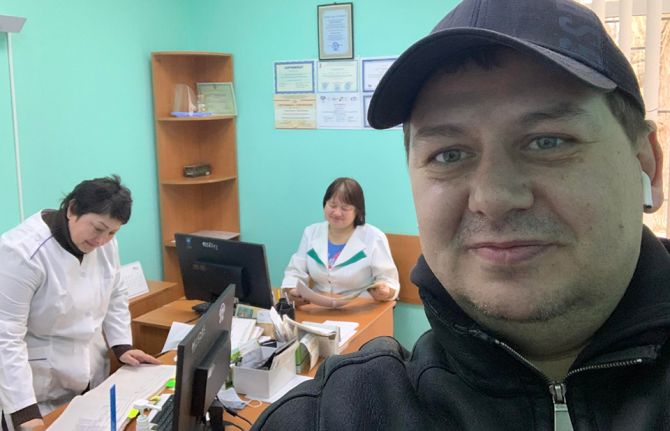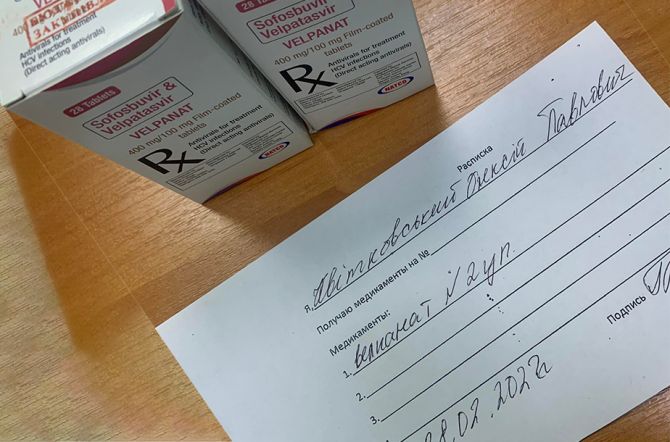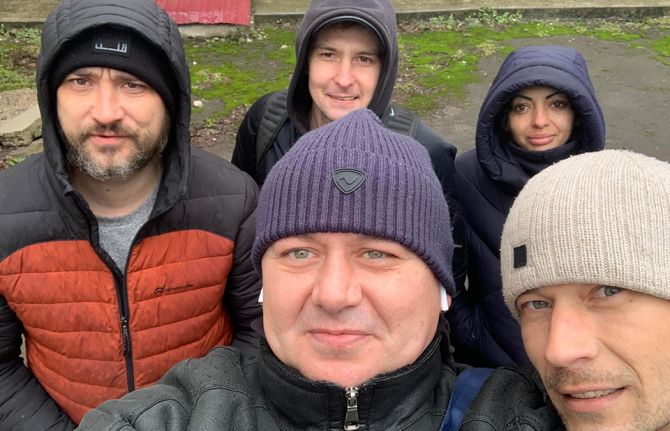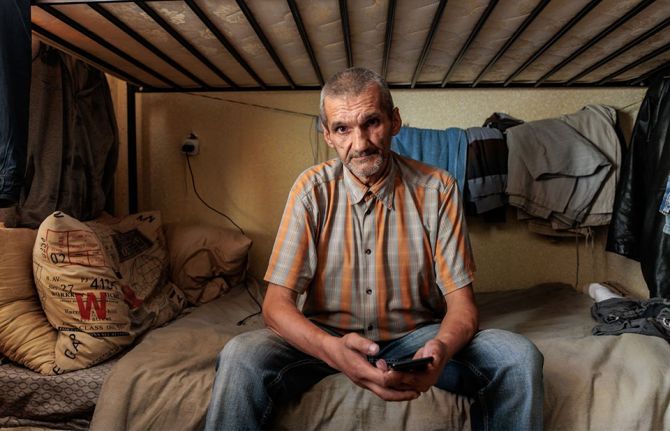



Feature Story
Keeping harm reduction available in Ukraine
09 March 2022
09 March 2022 09 March 2022Ten days after the start of the Russian invasion of Ukraine, UNAIDS spoke to Oleksii Kvytkovskyi, the head of the Volna Donbas Resource Center of the All-Ukrainian Association of People with Drug Addiction, a nongovernmental organization working with people who inject drugs in Ukraine.
How are you feeling Oleksii?
I am tired of fear and fleeing. I have decided I will carry on doing what I have been doing for the past 14 years—defending the rights of key communities, notably people who inject drugs and people in need.
This is not your first encounter with war?
Eight years ago, I was there when the Russian Federation attacked the eastern part of Ukraine—as you know, they are now self-proclaimed republics. I have three children and two were born during that conflict, one in 2014 and the other in 2019.
I still work in four cities in the Luhansk oblast (region), which are controlled by the Ukrainian Government, located almost on the front line: Severodonetsk, Lysychansk, Rubizhne and Kreminna.
What are you currently doing in your job?
We at the nongovernmental organization receive and then deliver opioid substitution therapy (OST) and food and water to those who need it. We only have enough OST until the month’s end. That’s about 28 days, and then I don’t know what we will do.
Access to antiretroviral therapy is also problematic in some cities. Basically, we look at who lacks what and if there are risks of interruption.
Have a lot of people left your area?
Very few people can leave because they don’t have enough funds to do so. Until now they have been evacuating women, small children and the elderly as a priority.
Our nongovernmental organization turned to international organizations and we received assistance from the Eurasian Harm Reduction Network, the Eurasian Network of People who Use Drugs and Volna, and that has really helped to provide urgent assistance.
What about you?
I begged my wife to take the children and leave for Lviv. I even found a place for them to live but she said that she wouldn't leave me, and so she stayed.
But I am afraid. I am anxious about my children and my beloved wife.
What keeps you going?
I go to work every day. People ask me if I fear for my life. My answer to this is, “When you solve someone’s problems, you unknowingly forget about fear and war. Then solving the problem of a person from the community becomes the key objective for you, so you set out to help in any way.”
Region/country
Related
 Ukraine: Keeping people in care
Ukraine: Keeping people in care

23 February 2026
 Women, HIV, and war: a triple burden
Women, HIV, and war: a triple burden

12 September 2025
 Displacement and HIV: doubly vulnerable in Ukraine
Displacement and HIV: doubly vulnerable in Ukraine

11 August 2025
